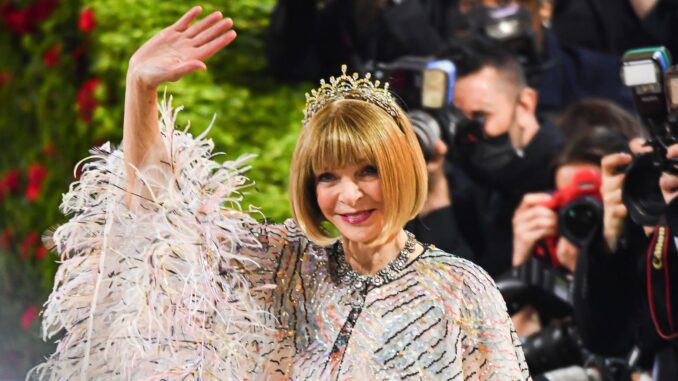
“`html
The news rippled through the fashion world like a perfectly executed runway reveal: Anna Wintour, the ice queen of Vogue, the editor-in-chief who had reigned supreme for an astounding 37 years, was rumored to be stepping down. While the actual announcement remains elusive and speculative at the moment, the mere possibility sparks a flurry of reflection on her unprecedented influence and the potential seismic shifts that would follow her departure.
The Wintour Era: A Legacy of Power and Paradox
Wintour’s tenure at Vogue wasn’t merely a job; it was a cultural epoch. She transformed the magazine from a purveyor of trends into a global tastemaker, dictating not only what we wore, but also shaping societal conversations around beauty, power, and identity. Her signature bob, oversized sunglasses, and unwavering gaze became synonymous with the very essence of fashion authority. But her reign has also been marked by controversy, sparking debate about accessibility, representation, and the very definition of beauty she championed. Her influence can be seen in numerous areas:
- The Rise of the Celebrity Cover: Wintour was instrumental in shifting the focus from models to celebrities on Vogue covers, a strategy that proved commercially successful and solidified the magazine’s place in mainstream culture.
- Championing Young Designers: While often perceived as intimidating, Wintour also played a crucial role in nurturing emerging talent, providing platforms and resources that helped launch the careers of many prominent designers.
- The Met Gala: Under her leadership, the Met Gala transformed from a local fundraising event into the most prestigious and widely discussed fashion event of the year. It became a powerful tool for both showcasing fashion and raising funds for the Costume Institute.
However, Wintour’s legacy isn’t without its critics. Her perceived elitism and lack of diversity in early years were subject to consistent scrutiny, particularly as societal awareness of inclusivity grew. She has made efforts to address these concerns in recent years, but the shadow of past criticisms remains.
The Future of Vogue: Beyond the Bob
If Wintour were to step down, the question immediately arises: who could possibly fill her formidable shoes? The fashion landscape has changed dramatically since 1988, with the rise of digital media, the democratization of style through social media, and the increasing importance of inclusivity and sustainability. The next editor-in-chief would face the challenge of navigating this complex terrain while maintaining Vogue’s relevance and influence. Some potential candidates include:
- Edward Enninful: The current editor-in-chief of British Vogue, Enninful is credited with revitalizing the magazine and championing diversity.
- Samira Nasr: The current editor-in-chief of Harper’s Bazaar, Nasr has a strong track record of promoting inclusivity and pushing creative boundaries.
- Someone Unexpected: Given the changing media landscape, it’s possible that Condé Nast could choose someone from outside the traditional fashion magazine world, perhaps a digital innovator or a cultural commentator.
Ultimately, the departure of Anna Wintour would mark the end of an era. Regardless of who succeeds her, they will inherit a legacy of immense power and influence, along with the daunting task of redefining Vogue for a new generation of readers. It will be a fascinating spectacle to witness as the fashion world adapts to a Vogue without Anna at the helm, and discovers what new direction this iconic magazine will follow.
“`
